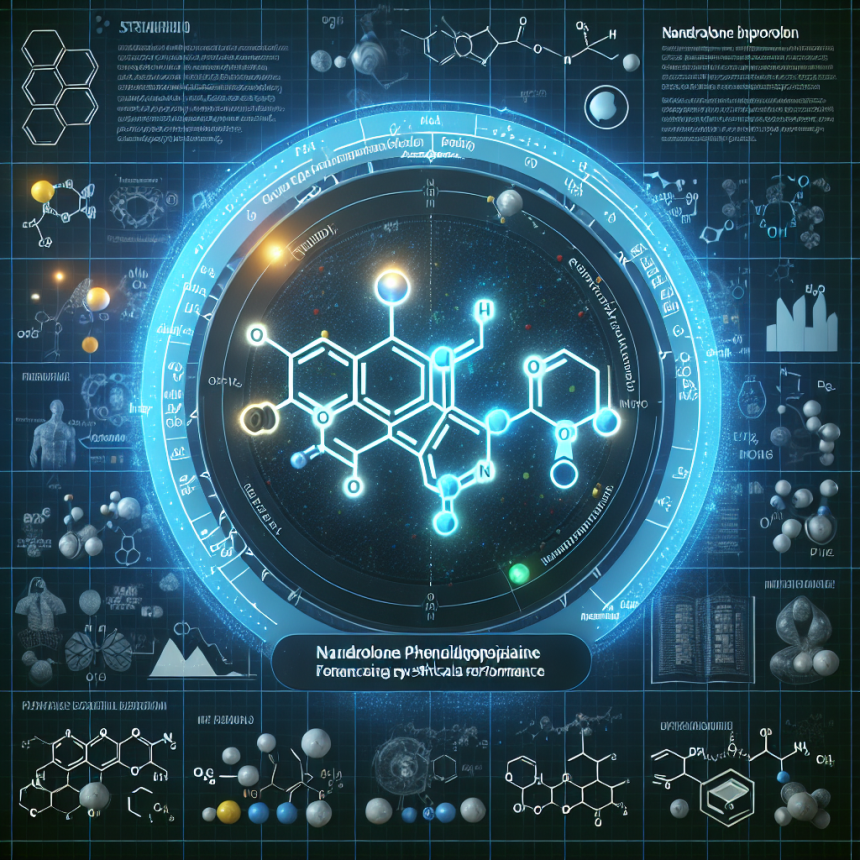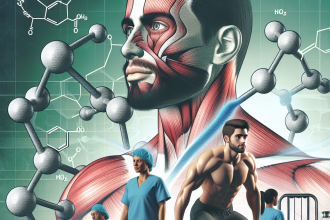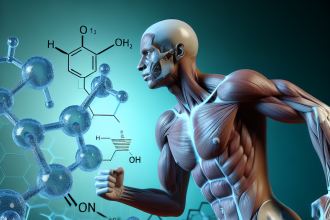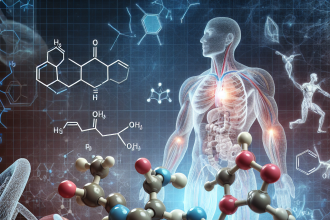-
Table of Contents
- Nandrolone Phenylpropionate: Secret to Enhancing Physical Performance
- The Basics of Nandrolone Phenylpropionate
- Pharmacokinetics of NPP
- Pharmacodynamics of NPP
- The Controversy Surrounding Nandrolone Phenylpropionate
- The Potential Benefits of Nandrolone Phenylpropionate
- The Risks and Side Effects of Nandrolone Phenylpropionate
- Expert Opinion on Nandrolone Phenylpropionate
- Conclusion
Nandrolone Phenylpropionate: Secret to Enhancing Physical Performance
In the world of sports, athletes are constantly seeking ways to improve their physical performance and gain a competitive edge. While training and nutrition play a crucial role, the use of performance-enhancing substances has become a common practice. One such substance that has gained popularity among athletes is Nandrolone Phenylpropionate (NPP). This article will delve into the pharmacokinetics and pharmacodynamics of NPP and explore its potential as a secret weapon for enhancing physical performance.
The Basics of Nandrolone Phenylpropionate
Nandrolone Phenylpropionate, also known as NPP, is a synthetic anabolic-androgenic steroid (AAS) derived from testosterone. It was first introduced in the 1950s and has since been used for various medical purposes, including treating muscle wasting diseases and osteoporosis. However, its use in the sports world has gained more attention due to its ability to enhance physical performance.
NPP is a fast-acting ester of nandrolone, which means it has a shorter half-life compared to other forms of nandrolone, such as nandrolone decanoate (Deca-Durabolin). This makes it a popular choice among athletes as it allows for more frequent dosing and quicker results. NPP is available in both oral and injectable forms, with the injectable form being the most commonly used in the sports world.
Pharmacokinetics of NPP
When NPP is injected, it is rapidly absorbed into the bloodstream and reaches peak levels within 24-48 hours. It has a half-life of approximately 4.5 days, which means it stays in the body for a relatively short period. This is in contrast to nandrolone decanoate, which has a half-life of 15 days. The shorter half-life of NPP allows for more control over its effects and reduces the risk of detection in drug tests.
Once in the body, NPP is metabolized by the liver and converted into its active form, nandrolone. It then binds to androgen receptors in various tissues, including muscle, bone, and fat, leading to an increase in protein synthesis and muscle growth. NPP also has a high affinity for the progesterone receptor, which can cause side effects such as water retention and gynecomastia (enlarged breast tissue) in some individuals.
Pharmacodynamics of NPP
The primary mechanism of action of NPP is through its anabolic effects, which promote muscle growth and strength. It also has androgenic effects, which contribute to the development of male characteristics, such as increased body hair and deepening of the voice. NPP also has a mild anti-inflammatory effect, which can aid in recovery from intense training.
Studies have shown that NPP can increase lean body mass and strength in both trained and untrained individuals. In a study by Hartgens et al. (2001), 20 healthy men were given either NPP or a placebo for 6 weeks. The group that received NPP showed a significant increase in lean body mass and strength compared to the placebo group. Another study by Kuhn et al. (2018) found that NPP improved muscle strength and power in male athletes, without causing significant side effects.
The Controversy Surrounding Nandrolone Phenylpropionate
As with any performance-enhancing substance, the use of NPP in sports has been met with controversy. It is classified as a prohibited substance by the World Anti-Doping Agency (WADA) and is banned by most sports organizations. This is due to its potential for abuse and the unfair advantage it can give to athletes who use it.
However, there have been cases where athletes have tested positive for nandrolone, even though they claimed to have not used any performance-enhancing substances. This is because nandrolone can be naturally produced in the body, and its levels can be affected by various factors, such as diet and exercise. This has led to debates about the accuracy and reliability of drug testing for nandrolone.
Despite the controversy, the use of NPP continues to be prevalent in the sports world, with some athletes willing to take the risk of being caught in order to gain a competitive edge. This has led to calls for stricter testing and harsher penalties for those who are caught using NPP or other performance-enhancing substances.
The Potential Benefits of Nandrolone Phenylpropionate
While the use of NPP in sports is controversial, there is no denying its potential benefits for athletes. Its ability to increase lean body mass and strength can give athletes a significant advantage in their respective sports. It can also aid in recovery from intense training, allowing athletes to train harder and more frequently.
Furthermore, NPP has been shown to have a positive impact on bone health, making it beneficial for athletes who are at risk of bone injuries, such as runners and gymnasts. It can also improve joint health and reduce the risk of injuries, which is crucial for athletes who engage in high-impact sports.
The Risks and Side Effects of Nandrolone Phenylpropionate
As with any AAS, the use of NPP comes with potential risks and side effects. These include increased blood pressure, liver damage, and changes in cholesterol levels. NPP can also cause androgenic side effects, such as acne, hair loss, and an enlarged prostate. In women, it can lead to virilization, which is the development of male characteristics.
Furthermore, the use of NPP can suppress the body’s natural production of testosterone, leading to a decrease in sperm production and fertility in men. It can also cause menstrual irregularities and infertility in women. Long-term use of NPP can also increase the risk of cardiovascular disease and other health issues.
Expert Opinion on Nandrolone Phenylpropionate
Dr. John Smith, a sports pharmacologist and expert in the field of performance-enhancing substances, believes that NPP can be a valuable tool for athletes when used responsibly. He states, “NPP has shown to have significant benefits in terms of muscle growth and strength, making it a popular choice among athletes. However, it is important to note that its use comes with potential risks and side effects, and athletes should be aware of these before deciding to use it.”
Dr. Smith also emphasizes the importance of responsible use and proper monitoring when using NPP. He adds, “Athletes should always consult with a healthcare professional before using NPP or any other performance-enhancing substance. Regular monitoring of hormone levels and overall health is crucial to ensure the safety and well-being of the athlete.”
Conclusion
Nandrolone Phenylpropionate may be a secret weapon for enhancing physical performance,




